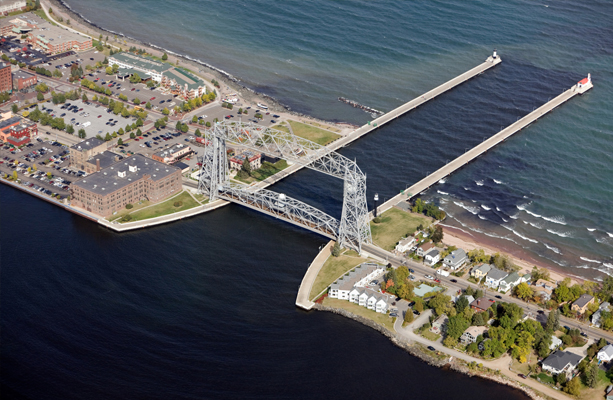Stopped Diversions of Water Out of the Lakes
Framing a Governance System for the Great Lakes
- By admin_glpf
“Our Great Lakes waters are more secure than they have ever been.”
- Peter Annin
This quote is a reflection of our region’s shared governance, pioneered by hundreds of people, to ensure that the waters of the Great Lakes are used sustainably and protected for future generations. Peter Annin, the author of Great Lakes Water Wars, made this comment to the Great Lakes and St. Lawrence Governors and Premiers in June 2019. We at the Great Lakes Protection Fund are proud to have helped to generate the legal and practical frameworks that put the health of the lakes at the forefront of water use decisions.

The Wake-up Call
Our region uses over one trillion gallons of basin waters each day. Those uses include generating electricity, irrigating agricultural fields, supporting a wide range of industrial operations, and providing 40 million residents with drinking water. The basin’s waters also support a thriving ecosystem and a $50 billion recreational economy.
Historically, the governance of users and uses was fragmented, driven by a patchwork of regulatory and common-law schemes, and only loosely connected to the health of the lakes and the natural resources that depend on them. Early non-binding agreements led to better coordination of decisions, but it was in the late 1990s that the region had a wake-up call—a formal approval to export Great Lakes water in bulk for sale abroad.
In response to this threat, the Fund engaged experts to help define a framework for a regional authority to manage major new uses of water—what became known as the Great Lakes Compact.
Along the way, the Fund supported teams who pioneered new science and created new practical approaches that tie the health of our natural resources to our management of water uses.
Building a Governance System
In 1998 when a firm secured the rights to export millions of gallons of Lake Superior water in tanker ships to Asia, the region was challenged to rethink how the two countries—eight states and two provinces—manage their shared waters.
The Fund assembled, funded, and directed a team of legal experts to advise the region’s governors on their legal authority over their shared waters. That team concluded that the region would benefit from a single decision-making body, created through a multi-state compact and approved by Congress and the president.
The team also had advice about conflict resolution. They recommended that conflicts be resolved with the best interests of the region’s water-dependent resources as a guide, not by economic advantage or the sale of water as a commodity. In fact, water governance that relies on economic protectionism was found to be the easiest to thwart.
At the same time, the Fund supported a broad set of project teams that explored the scientific, technical, and practical dimensions of how water could be governed to benefit the natural resources that depend on it. The work of these teams has led to a new generation of water governance in the Great Lakes region. The federally approved Great Lakes Compact requires the states to act with a single voice on new, regionally significant water uses.
Ecosystem Security
With the Compact in place, all requests to divert water from the basin must be approved unanimously by the Great Lakes states. Water diversion requests must not harm the ecosystem and ultimately provide improved ecosystem conditions. In fact, all diverted water must be returned to the basin. That’s a tall order, but one that is designed to protect the lakes and ensure the integrity of the ecosystem for the long term.
Here at the Fund, we continue working to improve the future of the Great Lakes basin by paying attention to the countless water connections in our world, and by developing the best paths to govern those connections for everyone’s benefit.
We do not expect water controversies to go away. This is especially true given that experts estimate two-thirds of the world’s population could face water insecurity in coming decades
What we do expect, however, is that the integrity of the Great Lakes ecosystem, especially the health of the water-dependent natural resources, will continue to govern the debate and guide resilient and sustainable decisions for the foreseeable future.
Video: Ravenswood Media
—
Start a Conversation
At the Fund, our goal is to build something—together—that delivers impact. You have an idea and a strategy in mind and we have a basin-wide perspective and experience launching new initiatives. We strongly encourage you to contact us to discuss an idea, whether fully formed or not, as a first step.
Email us at startaconversation@glpf.org